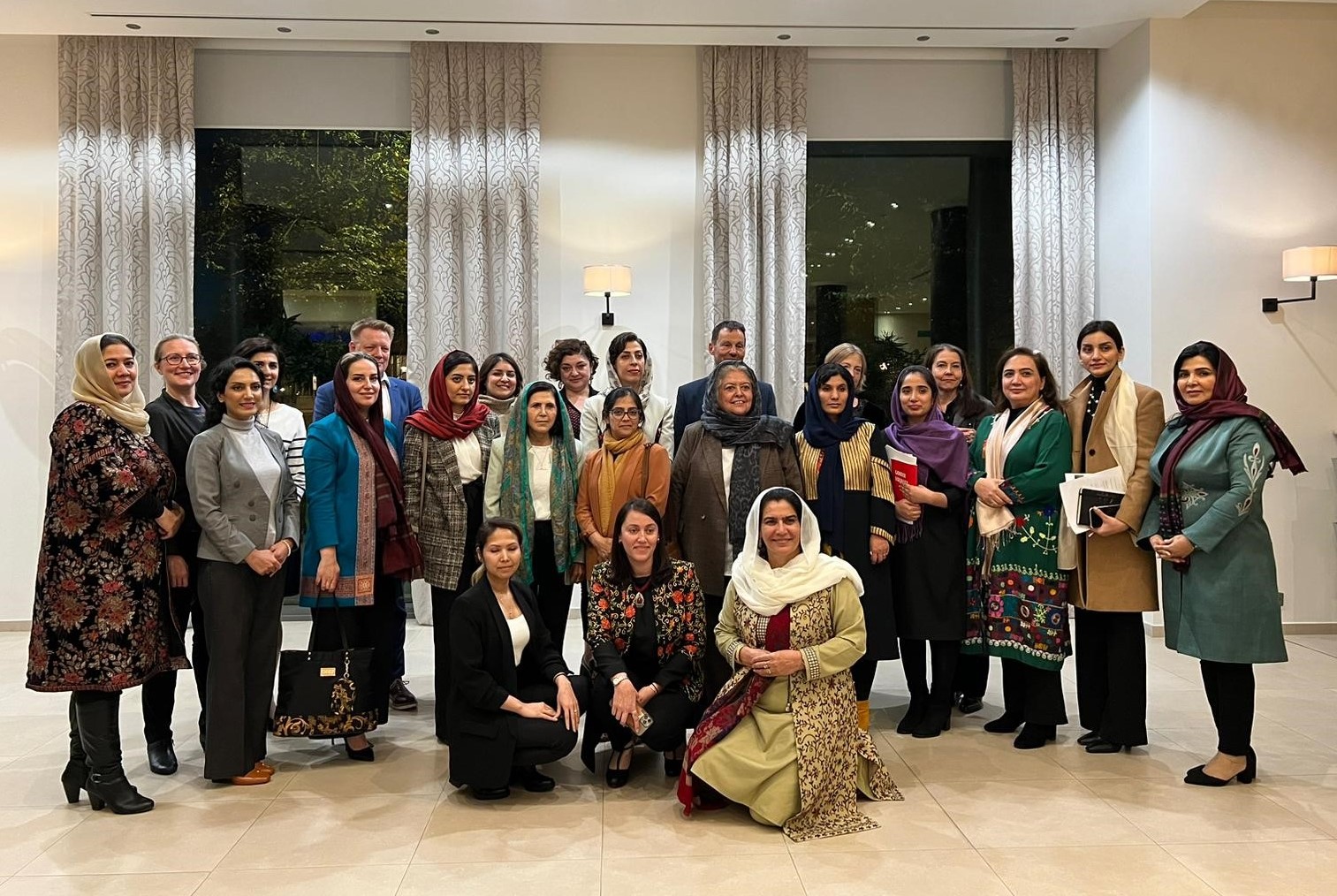Women should be part of the political transformation of Afghanistan

Photo: Mona Hossaini / Folke Bernadotte Academy
The European Union (EU) convened the third hybrid Afghan Women Leaders Forum in Brussels on 8-10 November. More than 60 Afghan women participated – 17 in person and 45 online – in what was a continuation of the dialogue launched in Brussels on 10 March 2022 to ensure women’s participation in shaping the future of Afghanistan and the role of women in Afghanistan.
The forum, chaired by Stella Ronner-Grubačić, EU Ambassador for Gender and Diversity, and Tomas Niklasson, the EU Special Envoy for Afghanistan and facilitated by CMI – Martti Ahtisaari Peace Foundation and Folke Bernadotte Academy (FBA), includes a wide variety of Afghan women, civil society and political leaders and activists, lawyers, journalists, and representatives from the Afghan women’s movement, both from within and outside of Afghanistan.
The third full forum meeting of the AWLF in Brussels aimed to further the EU’s continuous engagement with the AWLF and gave an opportunity to review important developments in and around Afghanistan, assess the development of the forum since its establishment and elaborate the AWLF’s priorities for 2023. It was also an opportunity to ensure greater engagement with women inside Afghanistan, and strengthen links between women inside and outside Afghanistan. The forum identifed synergies, commonalities and common positions, while acknowledging the diversity among AWLF members.
On the margins of the forum meeting on 8 November, the AWLF members had fruitful discussions with Josep Borrell, High Representative of the EU for Foreign Affairs and Security Policy/Vice President of the European Commission, and Jutta Urpilainen, the EU Commissioner for International Partnerships. The AWLF members emphasised the importance of an intra-Afghan dialogue and inclusive political processes and discussed means to improve security and fight against corruption. They also stressed the importance of engaging with regional actors, especially the neighboring countries. On 10 November, AWLF members met with the EU Political and Security Committee (PSC) Ambassadors. In addition, a public event was held where AWLF members engaged with the peacebuilding community in Brussels.
In their meetings with the EU interlocutors, AWLF members expressed their concerns not only about the ban of girls’ education in Afghanistan, but also the quality of education in schools that remain open in Afghanistan. They discussed the opportunities to support the private sector in Afghanistan, particularly women entrepreneurs, and the potential of the EU to initiate an intra-Afghan dialogue to bring together different segments of Afghan society to discuss challenging issues, including women’s rights and girls’ education. The women stressed the importance of the EU using its leverage and all possible means to pressure the Taliban to respect the Afghan people’s basic rights and to start a dialogue for an inclusive political process in Afghanistan.
Author: Women in Peacemaking Team